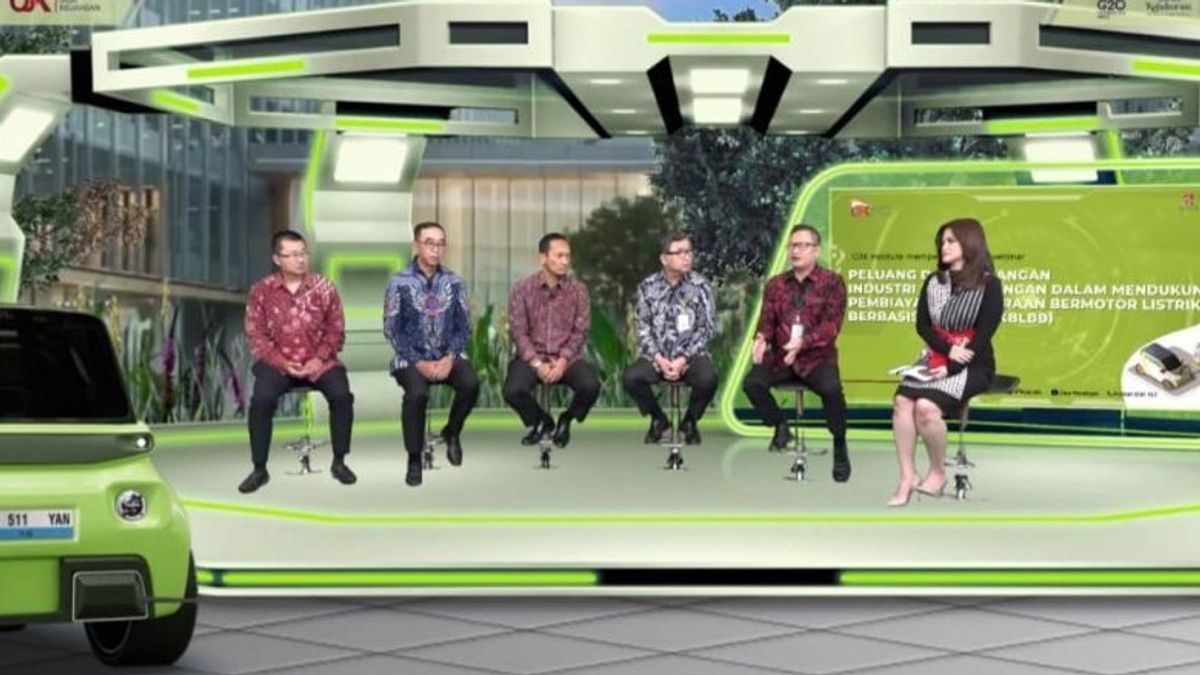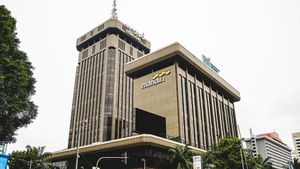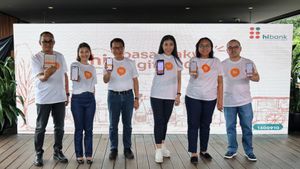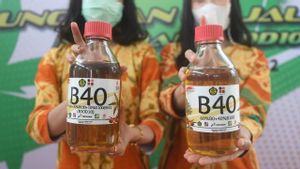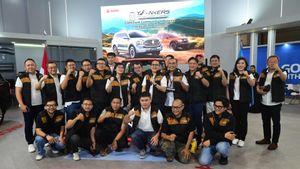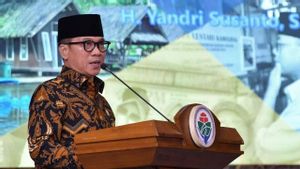The Financial Services Authority (OJK) is ready to encourage financial services industry players to support the development of the Battery-Based Electric Motor Vehicle (KBLBB) ecosystem in the country.
"OJK strongly supports the implementation of this growth from KBLBB in Indonesia. We will continue to encourage the financial services sector which is under our regulations to continue to support it," said Senior Executive Analyst of the Financial Services Sector Policy Group. Integrated OJK Greatman Rajab in a webinar quoted by Antara, Thursday 17 November.
OJK has a very important role as the locomotive of financing from financial service institutions, be it from banks, capital markets, finance companies, and insurance, to various related sectors in the KBLBB ecosystem.
"We are ready to issue the policies needed for the financial services industry that can be used to increase sales of Electric Vehicle (EV) in Indonesia," said Greatman.
OJK has issued policies to support the KBLBB ecosystem since 2020 and has been extended. In the banking sector, for example, OJK issued KEPP Letter Number S-4/D.03/2022 and No.S-5/D.03/2022 dated April 5, 2022, concerning Banking Support for Automotive Industrial Growth and the KLBB Acceleration Program which is valid from January 1, 2022 to December 31, 2022, which was extended through KEPP Letter No.S-14/D.03/2022 dated October 19, 2022 and is valid from January 1, 2023 to December 31, 2023.
In the letter, it is regulated regarding the relaxation of Weighted Actives According to Risk (ATMR). OJK reduced the risk weight of credit (ATMR) to 50 percent for the production and consumption of KBLBB from 75 percent initially.
Furthermore, the credit quality assessment for the purchase of KBLBB and/or upstream industrial development from KBLBB with a ceiling of up to Rp. 5 billion can only be based on the accuracy of paying the principal and/or interest according to POJK Number 40/2019 concerning the Assessment of the Quality of Public Banks Assets and on the accuracy of paying the principal and/or margin/distribution for Sharia Commercial Banks according to POJK Number 2/2022 concerning Assessment of Sharia Commercial Bank Asset Quality and Sharia Business Units.
The next point is related to the KBLBB ecosystem which can be categorized as fulfilling sustainable financial provisions. The provision of funds to debtors with the aim of purchasing KBLBB and/or developing the upstream KBLBB industry (batch industry, charging station industry, and component industry) can be categorized as fulfilling the provisions for the implementation of sustainable finance as regulated in POJK Number 51/2017 concerning the Application of Sustainable Finance, including OJK incentives including including including being included in the HR development program and the awarding of sustainable finance awards.
Finally, the exception of the Maximum Credit Addiction (BMPK). The provision of funds in the context of KBLBB production and its infrastructure can be categorized as a government program that gets BMPK exemptions for conventional commercial banks according to POJK Number 32/2018 jo. POJK Number 38/2019 concerning Maximum Limits on Providing Large Fund Loans and Provision and BMPD exemptions for Sharia Commercial Banks according to POJK No. 26/2021 concerning Maximum Limits on Fund Distribution and Distribution of Large Funds for Islamic commercial banks in terms of guaranteed by state-owned enterprises or BUMN and BUMD insurance.
In the capital market sector, OJK coordinates with the self-regulation organization or SRO in providing green bond incentives, namely levy discounts on the cost of the green bond registration statement (KDK Number 24/KDK.01/2018 dated December 31, 2018) to 25 percent of the original levy.
On the Indonesia Stock Exchange (IDX), there is a discount on the listing fee or annual fee. In Stock Exchange Regulation Number IB concerning Delisting Securities in the nature of debt, it is stated that there is a reduction in the annual green bond recording fee rate by 50 percent from the recording fee rate.
For cross-sectors, OJK coordinates with various stakeholders to organize business matching activities as a forum aimed at introducing viable green projects and identifying the potential support of financial services institutions for green project funding through facilitation of discussions between business actors and financial service institutions.
"We also hope for new product innovations from friends in financial services institutions. We will continue to encourage financial service institutions to issue innovations for new products that can support this," said Greatman.
Greatman added that policy synergy between ministries or institutions as well as regulators is very crucial in developing the KBLBB ecosystem.
"This synergy must be encouraged. There must be someone who leaves, there must be a conductor. I actually hope that there is one possible ministry related to push, forcing in the positive sense of all ministries of regulatory institutions that issue policies that are both to support the acceleration of this EV in Indonesia," said Greatman.
The English, Chinese, Japanese, Arabic, and French versions are automatically generated by the AI. So there may still be inaccuracies in translating, please always see Indonesian as our main language. (system supported by DigitalSiber.id)
